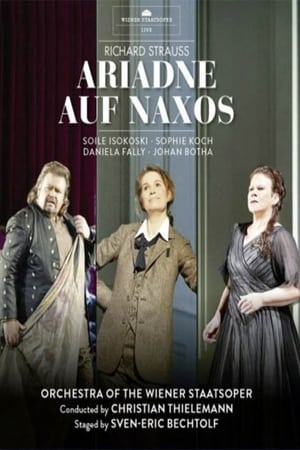Small Swords Society
Similar Movies
Lady Macbeth of Mtsensk(ru)
A young woman, married to a wealthy man, but miserably lonely; trapped within a world ruled with an iron fist. Katerina is driven by a lust for life and for love. Her husband, though, is impotent; her father-in-law a tyrant. No wonder, then, that she longs to free herself from this yoke. When Sergei starts work on the family estate, she sees in him a chance for salvation. However, their subsequent affair marks the beginning of a descent into crime.
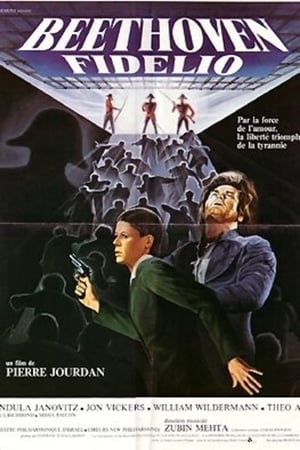 0.0
0.0Fidelio(fr)
Leonore disguises herself as a man, "Fidelio," to infiltrate a prison and rescue her husband, Florestan, unjustly imprisoned by the tyrant Pizarro. Gaining the trust of the jailer, Rocco, and his daughter, Marzelline—who unknowingly falls for Fidelio—Leonore’s courage is tested when Pizarro orders Florestan’s execution. In a climactic moment, she reveals her identity and saves Florestan just as the king’s minister arrives, restoring justice. The opera celebrates themes of love, sacrifice, and freedom.
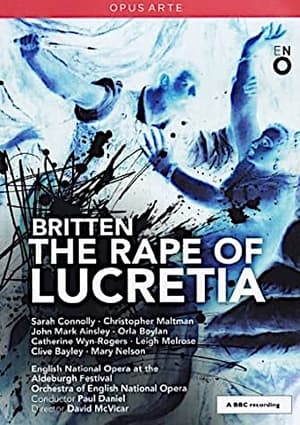 10.0
10.0Britten: The Rape of Lucretia(en)
Sarah Connolly's 'outstanding' (The Guardian) portrayal of the wronged Roman noblewoman, written originally for Kathleen Ferrier, lies at the hear of David McVicar's powerfully stark production for English National Opera as 'an everyday sort of woman who could be living at any time or place'. Her nemesis is the arrogant Tarquinius of Christopher Maltman, 'who made the air tingle with danger' (Financial Times). Sung in English.
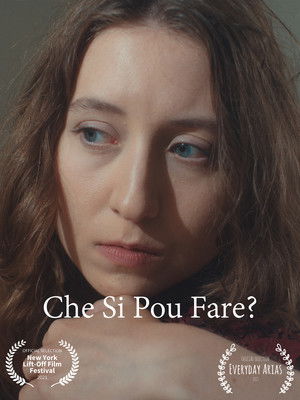 0.0
0.0Che Si Può Fare?(en)
Explores the Opera music genre in the world of cinema.
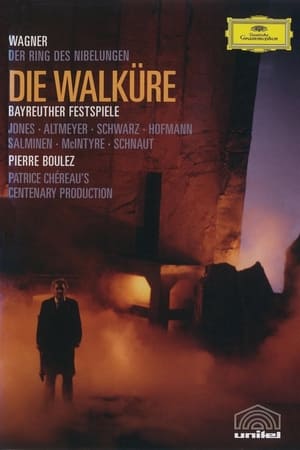 6.7
6.7Wagner: Die Walküre(de)
The second part of Patrice Chérau's epoch-making Bayreuth Ring is a radical re-imagining of Die Walküre, unprecedented in its psychological penetration. This production of " Die Walkure," staged as part of Patrice Chereau's Centenary celebration marking the 100th anniversary of the completion of the "Ring," this lavish performance features Donald McIntyre as Wotan, Peter Hofmann as Siegmund, and Gweneth Jones as Brunnhilde; Pierre Boulez conducts the Orchester Der Bayreuther Festspiel.
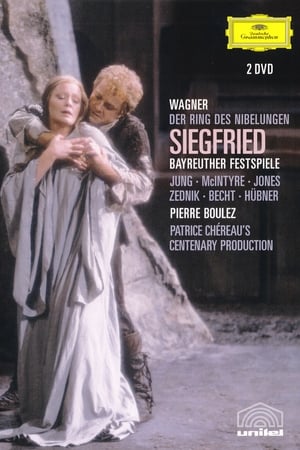 6.0
6.0Wagner: Siegfried(de)
The third opera in Richard Wagner's epic Ring cycle, Siegfried follows the adventures of the son of demigods Siegmund and Sieglinde as he conquers his enemies and rescues the beauteous Brunnhilde with the help of his magic sword. This video preserves the controversial 1976 Bayreuth Centenary production, with Pierre Boulez leading the Bayreuth Festival Orchestra. Manfred Jung leads the cast as Siegfried, with Gwyneth Jones as Brunnhilde, Donald McIntyre as the Wanderer, and Hermann Becht as Alberich.
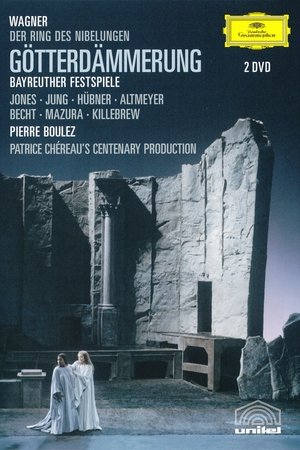 6.5
6.5Wagner: Götterdämmerung(fr)
Götterdämmerung, the fourth of Richard Wagner's four Ring operas. The cast features Manfred Jung as Siegfried and Gwyneth Jones as Brünnhilde, with music provided by Bayreuther Festspiele Orchester conducted by Pierre Boulez. This title is available in a boxed set with the other Ring operas, Das Rheingold, Die Walküre, and Siegfried.
 6.4
6.4Parsifal(de)
A psychological interpretation of the opera mixing in references to the history of Germany, Wagner’s life, German literature and philosophy. The action is centered on Wagner’s death mask. Kundry is the main character – one might read the film as the story of her redemption rather than that of Amfortas.
Le comte Ory(fr)
Cecilia Bartoli stars in this ebullient Zurich Opera House production of Rossini’s first French-language comedy opera described by the international press as “pure, unadulterated fun” and reminds us of her comic gifts and her naturalness as a stage actor — as well as her total sympathy with the music of Rossini.
 7.0
7.0Candide(en)
Candide falls in love with the beautiful but materialistic Cunegonde. Her barron father doesn't approve of the affair so Candide wanders, meeting all the misfortunes along the way.
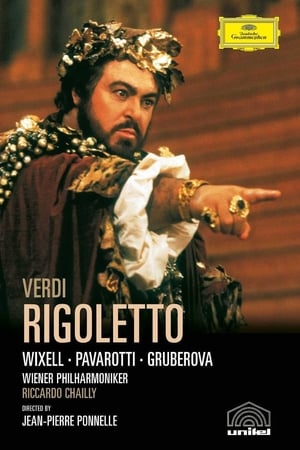 6.9
6.9Verdi: Rigoletto(it)
Rigoletto is a jester in the court of the Duke of Mantua. He has a hunch-back and he's rather unattractive, but he's good at his job of humiliating the courtiers for the amusement of the Duke. The courtiers, of course, are not amused. The Duke is a ladies man who feels his life would be meaningless if he couldn't chase every skirt he sees. In fact, we learn as the opera begins that he's recently been noticing a young lady every Sunday on her way to church, and he's vowed to have his way with her. What nobody realizes is that the girl is the jester's beloved daughter, Gilda, and that Gilda has seen the Duke every Sunday and is smitten with him. Suddenly Count Monterone appears at court, furious that the Duke has seduced his daughter. Rigoletto ridicules Monterone, the Duke laughs, and Monterone casts an awful curse on both of them. Later, the courtiers discover that Rigoletto is secretly living with Gilda...
 10.0
10.0Lohengrin(en)
Lohengrin is a romantic opera in three acts composed and written by Richard Wagner.
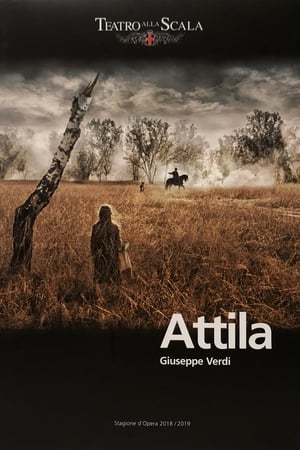 0.0
0.0Verdi: Attila(it)
First staged at the Teatro La Fenice in 1846, Verdi’s ninth opera, Attila, returns to the stage of La Scala on December 7th. Following the inauguration of the 2015-2016 Season with Giovanna d’Arco and in anticipation of Macbeth, with Attila Musical Director Riccardo Chailly continues his study of Verdi’s early works, renewing a successful collaboration with creative director Davide Livermore that began with his acclaimed production of Donizetti’s Don Pasquale for La Scala. In this complex opera Verdi experiments with fresh perspectives, featuring spectacular historical settings, introspective angles and moral uncertainties. Attila demands of its performers not only passion and confidence, but also the ability to find subtle accents and psychological nuances.
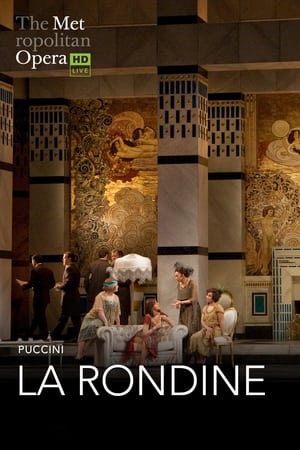 7.0
7.0The Metropolitan Opera: La Rondine(it)
Puccini’s bittersweet love story returns to cinemas, with soprano Angel Blue starring as the French courtesan Magda, opposite tenor Jonathan Tetelman as Ruggero, an idealistic young man who offers her an alternative to her life of excess. Maestro Speranza Scappucci conducts Nicolas Joël’s Art Deco–inspired staging, which transports audiences from the heart of Parisian nightlife to a dreamy vision of the French Riviera. Soprano Emily Pogorelc and tenor Bekhzod Davronov complete the sterling cast as Lisette and Prunier.
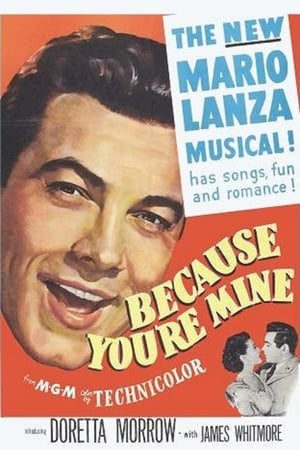 6.7
6.7Because You're Mine(en)
A famous opera singer falls for his sergeant's sister at boot camp.
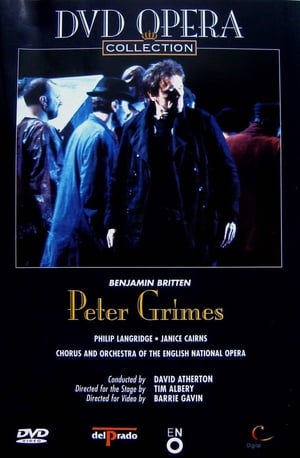 0.0
0.0Peter Grimes(en)
Benjamin Britten's opera as performed by the English National Opera, with Philip Langridge in the title role.
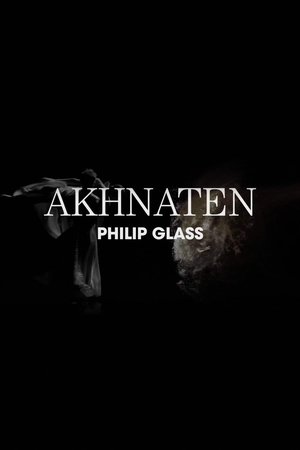 0.0
0.0Philip Glass: Akhnaten(en)
Akhnaten is set in Ancient Egypt, and based on the accession to the throne of the pharaoh Amenhotep IV – thought to have been around 1351BC – on his religious convictions, and the consequences of his actions. Presented as a combination of song, dance and music, the opera has a libretto by Philip Glass, Shalom Goldmann, Robert Israël and Richard Ridell, with the text drawing on ancient hymns, prayers and inscriptions, sung in their original Egyptian, Hebrew and Akkadian form. Produced by the Opéra de Nice Côte d’Azur as part of the Festival MANCA.
 8.0
8.0Amadeus(en)
Disciplined Italian composer Antonio Salieri becomes consumed by jealousy and resentment towards the hedonistic and remarkably talented young Viennese composer Wolfgang Amadeus Mozart.
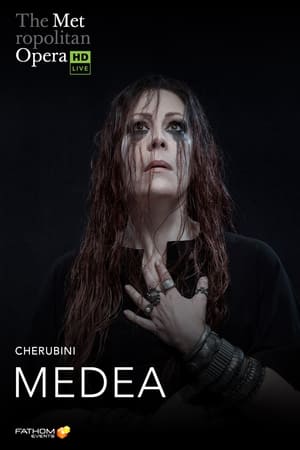 0.0
0.0The Metropolitan Opera: Medea(it)
Having triumphed at the Met in some of the repertory’s fiercest soprano roles, Sondra Radvanovsky stars as the mythic sorceress who will stop at nothing in her quest for vengeance. Joining Radvanovsky in the Met-premiere production of Cherubini’s rarely performed masterpiece is tenor Matthew Polenzani as Medea’s Argonaut husband, Giasone; soprano Janai Brugger as her rival for his love, Glauce; bass Michele Pertusi as Glauce’s father, Creonte, the King of Corinth; and mezzo-soprano Ekaterina Gubanova as Medea’s confidante, Neris. Carlo Rizzi conducts.

